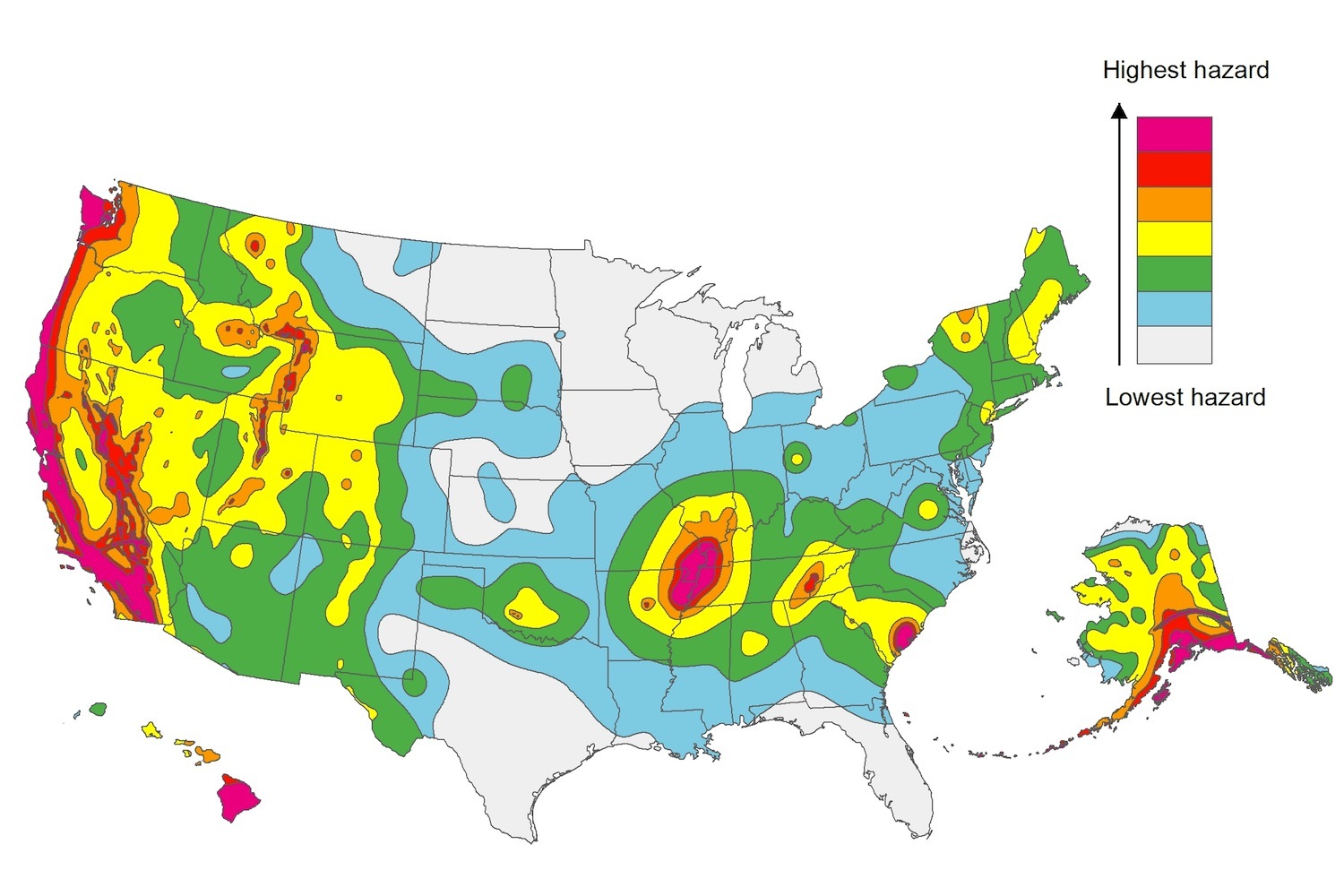The U.S. Geological Service recently released an update of U.S. National Seismic Hazard Maps that reflect the latest analysis of where future earthquakes will occur, how frequently they may occur, and their strength.
While all states have some potential for earthquakes, 42 of the 50 states have a reasonable chance of experiencing damaging ground shaking from an earthquake in the next 50 years. Sixteen states have a relatively high likelihood of experiencing damaging ground shaking. These states have historically experienced earthquakes with a magnitude 6 or greater. The hazard is especially high along the west coast, intermountain west, and in several active regions elsewhere such as near New Madrid, Mo., and near Charleston, S.C.
The eastern U.S. has the potential for larger and more damaging earthquakes than considered in previous maps and assessments. This finding is due to what scientists learned following the magnitude 5.8 earthquakes that struck Virginia in 2011. It was among the largest earthquakes to occur along the east coast in the last century, and indicated that even larger events in the region are possible.
The maps are used in risk analyses calculated using factors such as population levels, building exposure, and building construction practices. These assessments are used for establishing building codes, in the analysis of seismic risk for key structures, and in determining insurance rates. They can also aid emergency preparedness plans, and private property decisions such as re-evaluating one’s real estate and making it more resilient.
(http://www.usgs.gov/blogs/features/usgs_top_story/new-insight-on-the-nations-earthquake-hazards/)
Related Stories
Codes and Standards | Jun 8, 2020
OSHA construction safety inspections fall 84% during COVID-19 pandemic
Agency focuses on preventing disease transmission in healthcare industry.
Codes and Standards | Jun 8, 2020
5 must reads for the AEC industry today: June 8, 2020
Frank Lloyd Wright sites set to reopen and construction jobs rise by 464,000.
Codes and Standards | Jun 8, 2020
Reopened offices raise liability risk for businesses and owners
Risks may not be covered by property insurance.
Codes and Standards | Jun 4, 2020
American Wood Council updates report on fire resistance of wood members and assemblies
Provides new examples and background on mass timber calculations.
Codes and Standards | Jun 3, 2020
Virginia makes GCs liable for subs employee wages
New law allows workers to sue GCs for wages in class action.
Codes and Standards | Jun 2, 2020
Designers, owners reinventing restaurants to cope with COVID-19
Options include rearranged seating, mobile ordering, designated flow spaces.
Codes and Standards | Jun 1, 2020
How owners should comply with OSHA roofing safety guidelines
Buildings should have fall protection and restraint provisions for those who go on roofs.
Codes and Standards | May 29, 2020
AIA releases new, updated sustainable project documents
Streamlined sustainable design and construction process included.
Codes and Standards | May 28, 2020
USGBC outlines how it will support pandemic recovery efforts
Includes emergency guidance and upgrades to the LEED green building program.
Codes and Standards | May 27, 2020
Office market could be COVID-19 casualty
As companies get used to work at home, post-pandemic office market could collapse.

















